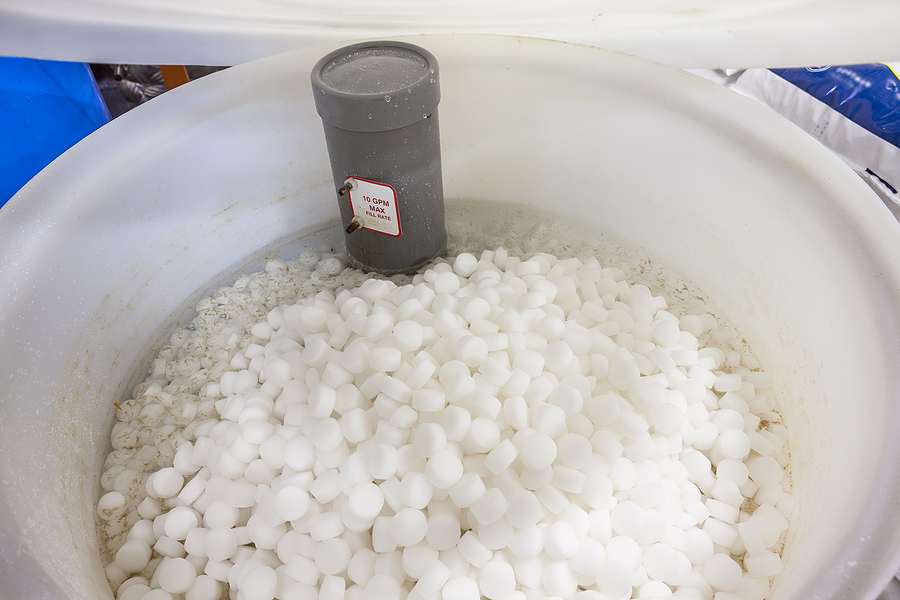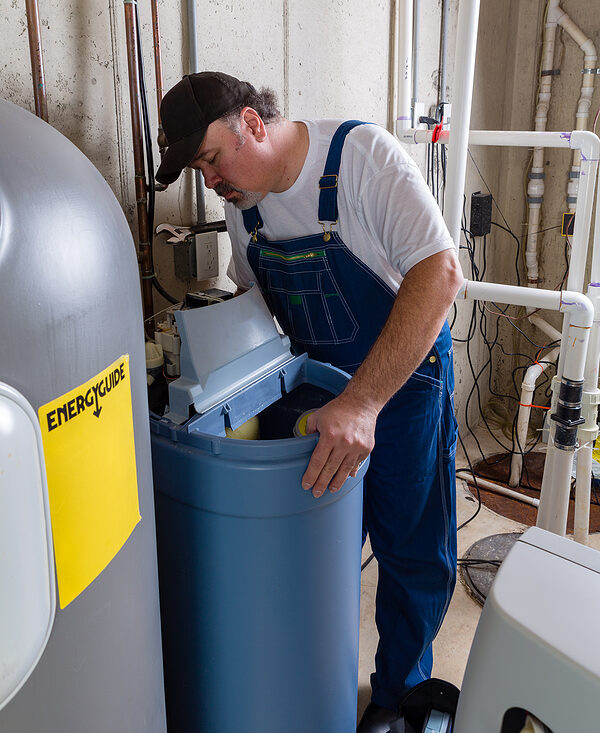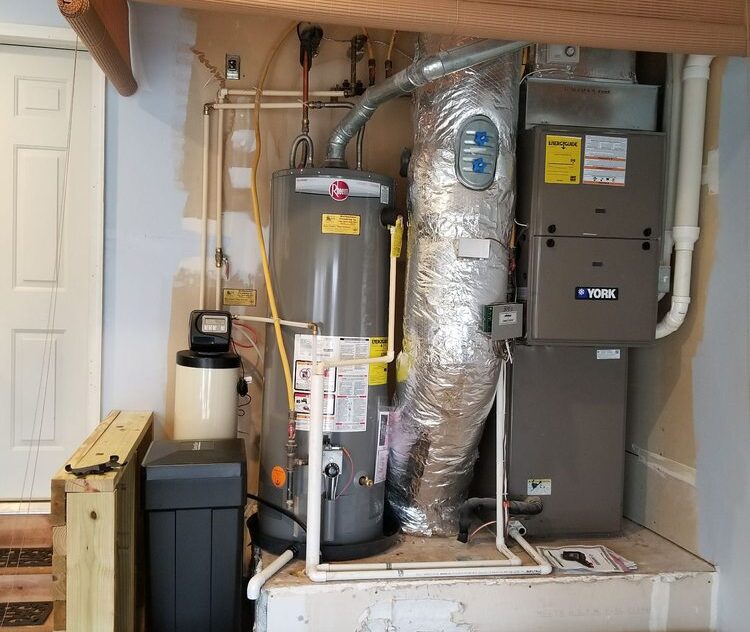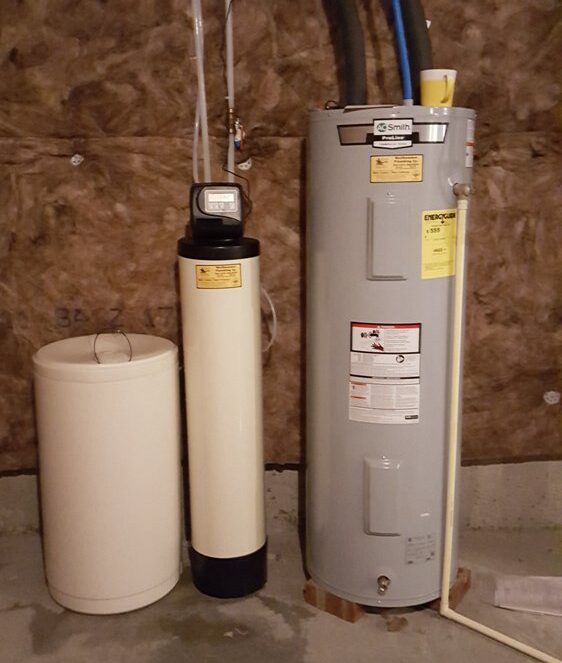Most homeowners don’t think about their water softener until they step out of the shower and their skin feels like sandpaper. It’s the silent workhorse of your plumbing system, tucked away in a basement or garage, tirelessly battling the heavy mineral content that characterizes local water supplies. But like any major appliance, it has an expiration date.
If your unit is approaching or has passed the decade mark, you are likely facing a common dilemma: keep patching up an aging machine or invest in a modern replacement. This isn’t just about avoiding dry skin or spotty dishes; it’s a financial and environmental decision. Older units can hemorrhage water and salt, driving up utility bills while struggling to do the job they were designed for.
This guide explores the lifespan of water softeners, the hidden costs of holding onto an old unit too long, and how upgrading could save you money—and headaches—in the long run.
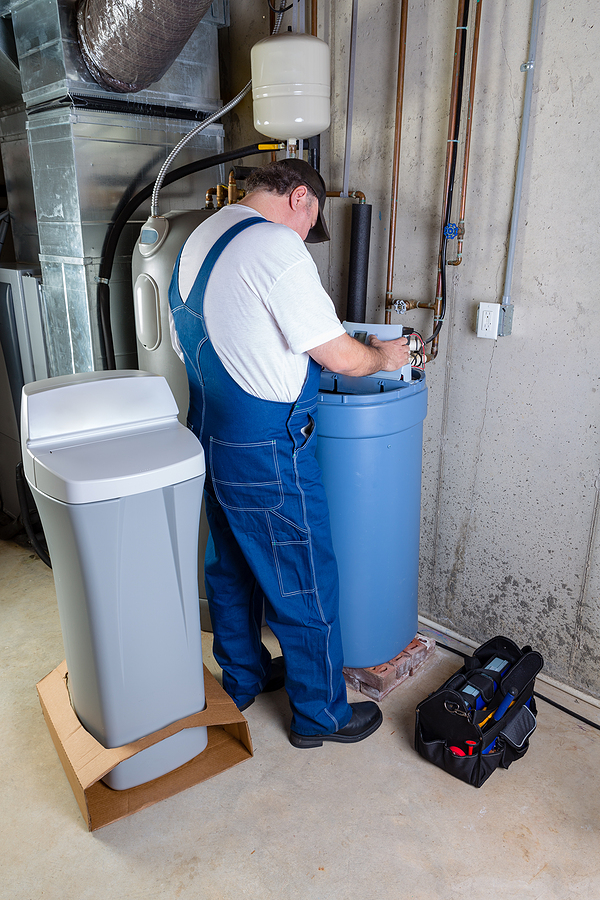
The Hidden Signs of an Aging Water Softener
Water softeners typically have a lifespan of 10 to 15 years. While the tank itself might look sturdy on the outside, the internal components—specifically the resin beads and the control valve—degrade over time. A 10-year-old system often loses its effectiveness gradually, meaning you might not notice the decline immediately.
Here are the red flags that indicate your decade-old unit is nearing the end of its road:
The Return of Hard Water Symptoms
The most obvious sign is a resurgence of the problems the softener was meant to solve. If you notice white, chalky scale building up on your faucets and showerheads, your system isn’t removing calcium and magnesium effectively. You might also find that soap no longer lathers easily, laundry feels stiff and scratchy, or your skin feels perpetually dry and itchy after washing.
Changes in Water Pressure
If your shower stream has turned into a trickle, your water softener could be to blame. Over time, the resin beads inside the tank can break down into a fine silt or become fouled by iron and chlorine. This compacted resin creates resistance, significantly reducing the water pressure flowing into your home. A bypass test—switching the unit to “bypass” mode to see if pressure improves—can confirm if the softener is the bottleneck.
Erratic Salt Usage
Pay attention to the brine tank. If you are refilling the salt much more frequently than usual, the machine might be stuck in a regeneration cycle, wasting resources. Conversely, if the salt level never seems to go down, the system has stopped regenerating altogether, meaning you are effectively running hard water through your pipes.
The Efficiency Gap: Old vs. New Technology
Technological advancements in water treatment have been substantial over the last decade. Comparing a 10-year-old softener to a modern unit is like comparing an old gas-guzzler to a hybrid vehicle. The difference lies primarily in how and when the system decides to regenerate.
Timer-Based vs. Demand-Initiated
Older units often rely on a “time-clock” regeneration method. They are set to clean themselves on a rigid schedule—say, every three days—regardless of how much water you’ve actually used. If you go on vacation, it cleans itself unnecessarily, wasting water and salt. If you have a house full of guests, it might not clean itself often enough, letting hard water slip through.
Modern, high-efficiency models utilize “Demand-Initiated Regeneration” (DIR). These smart systems monitor your actual water usage and only regenerate when necessary. This shift in technology can reduce salt and water consumption by up to 50%. Over the lifespan of the unit, that efficiency translates into hundreds of dollars in savings on salt blocks and water bills.
Resin Degradation
Even if the mechanics of your old unit are fine, the chemistry might be failing. The resin beads inside the tank lose their capacity to hold onto hard water minerals by about 1.5% every year. Chlorine in municipal water supplies acts as an oxidant, turning resin beads into mush over time. By year 10, your softener might only be operating at 85% capacity or less, forcing it to work harder and regenerate more often to achieve the same result.
Learn More About Water Softener Maintenance & Repair ✨
The Financials: Repair vs. Replace
When faced with a broken unit, the instinct is often to fix it. However, the “50% Rule” is a helpful standard for appliances: if the cost of the repair is more than 50% of the cost of a new unit, replacement is usually the wiser choice.
The Cost of Limping Along
Let’s say a control valve on your 12-year-old softener fails. Parts and labor for this repair can easily run between $200 and $500. If a basic new system costs $1,000, you are getting close to that 50% threshold.
Furthermore, spending money to fix an old machine doesn’t address the efficiency issues. You are essentially paying a premium to keep an inefficient system running. A new water softening system might have a higher upfront cost, but the monthly reduction in salt and water usage helps offset that investment over time.
Calculating Long-Term ROI
Consider the cost of salt alone. An inefficient older model might burn through 10-12 bags of salt a year. A high-efficiency model might only need 5 or 6. At roughly $7 to $10 per bag, plus the physical labor of hauling 40-pound bags into your basement, the savings—both financial and physical—add up.
Environmental Considerations
Water softeners have a significant environmental footprint, primarily due to the chloride they discharge into the sewage system.
When a softener regenerates, it flushes a saltwater brine solution down the drain. Municipal wastewater treatment plants are generally not designed to remove this dissolved salt. Consequently, that salt ends up in local freshwater streams, rivers, and lakes, where it can be harmful to aquatic life and freshwater ecosystems.
By replacing a 10-year-old timer-based unit with a modern, high-efficiency system, you significantly reduce the chloride load your home contributes to the local environment. It’s a meaningful way to protect freshwater resources while still protecting your plumbing.
Installation: A Job for Professionals?
Once you decide to replace, the next question is installation. While big-box stores sell DIY kits, installing a water softener involves complex plumbing and code compliance that can be tricky for the average homeowner.
Why Professional Installation Matters
Professional water softener installation ensures the system is sized correctly for your home’s specific hardness level and water usage. An undersized unit will wear out quickly, while an oversized one costs more than necessary.
Professionals also handle:
- Proper Drainage: Ensuring the discharge line meets local plumbing codes to prevent backflow or contamination.
- Disposal: Hauling away and properly recycling the heavy, bulky old unit.
- Calibration: Programming the control valve settings to match your specific water hardness grains per gallon, ensuring optimal efficiency from day one.
While a DIY approach might save money upfront, improper installation can lead to leaks, code violations, or a voided manufacturer warranty.
Final Thoughts
Deciding to replace a 10-year-old water softener is rarely exciting, but it is often necessary. If your unit is showing signs of mechanical failure, requires frequent repairs, or simply eats through salt like a hungry teenager, it has likely become a liability rather than an asset.
Upgrading offers peace of mind. You get consistent soft water, protection for your other appliances (like dishwashers and water heaters), and lower monthly operating costs. It’s an investment in your home’s infrastructure that pays dividends every time you turn on the tap.
If you are unsure about the health of your current system, don’t guess. Have a professional evaluate your water hardness and the condition of your equipment before making a decision.
Not sure if your system can be saved or if it’s time for an upgrade? The water in Indianapolis is notoriously hard, and your softener works overtime to keep up. Contact Our Team today for a professional water softener inspection. We specialize in diagnosing, repairing, and installing high-efficiency systems tailored to Indianapolis water conditions. Let us help you get the best water quality for your home and family.
Related Post: Hard Water Returning? How to Troubleshoot Your Softener at Home

